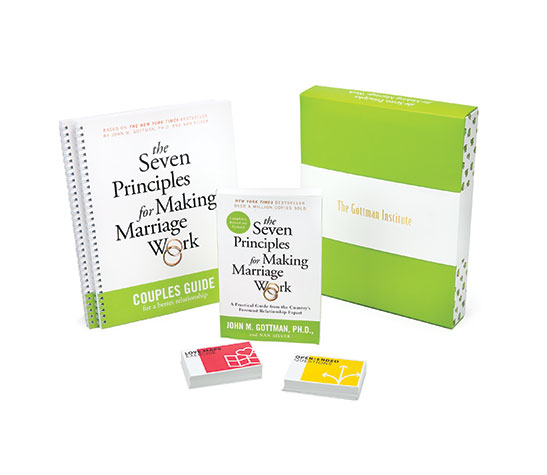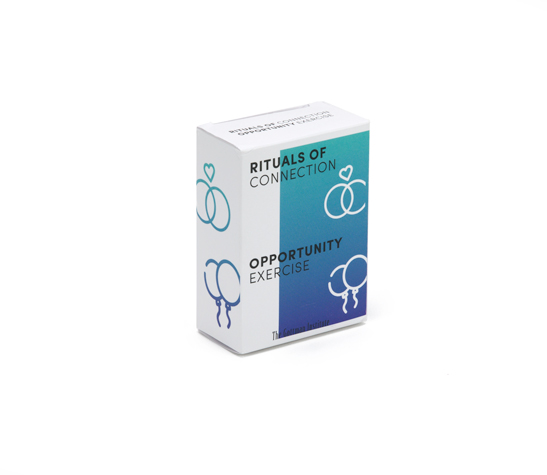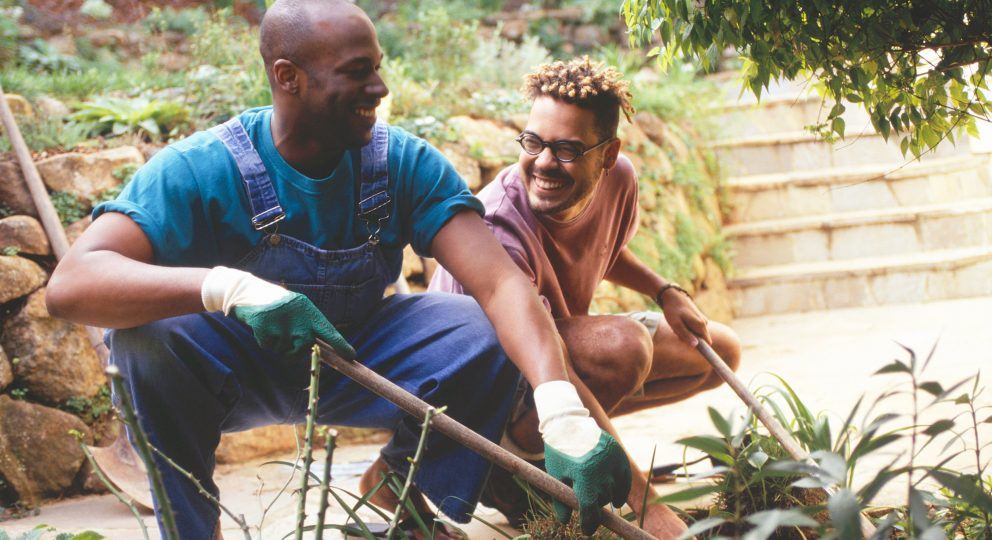By Jacqui Winship
Editor’s Note: We’ve been studying relationships for the last four decades, but we still have so much to learn. Through the stories and experiences shared in Real Relationships, we aim to paint a more realistic picture of love in the world today. The views, thoughts, and opinions expressed in this article belong solely to the author and are not necessarily based on research conducted by The Gottman Institute.
My husband and I got together in rocky circumstances, both of us on the rebound from previous painful breakups. Friends warned us not to, but Guy and I were always devout optimists. We took a chance on each other and were married 18 months later. We bought a big, rambling house in our hometown and acquired two golden Labradors, onto whom we projected all our parental imaginings. Twenty-eight years later, in a similar home on another continent, with two human children now central to our lives, I sat watch as Guy’s cancer finally consumed him.
This wasn’t how our love story was meant to end, but nevertheless, I am grateful for what a love story it was. Neither Guy nor I believed in the concept of soulmates. We believed that great relationships are made more than magicked. While we certainly fell very much in love back in 1990, we worked hard over the years to nurture this love into a strong, close, supportive, caring relationship, one in which our flaws and vulnerabilities could be shared, soothed and accepted. It became the rock on which we both relied.
As a microfinance practitioner, Guy often used the analogy of a bank when he spoke about relationships. He used to say that when times were good, we needed to invest in the relationship bank so that in the bad times there would be savings to draw on. When he got his diagnosis and its grim prognosis, which he bore so stoically, Guy said he was glad we had made so many deposits in our “bank” because we would be needing to make many withdrawals over the difficult time ahead. But this wasn’t how it turned out to be at all. Over the years of his illness, we grew closer, rather than further apart. We were more in love and kinder to each other than ever before. The awareness of scarcity made us appreciate each other and what we had more than ever. Our relationship bank got fuller rather than emptier.
There is a well-known Kahlil Gibran quote which speaks about the need for there to be “spaces in your togetherness…Love one another but make not a bond of love…Fill each other’s cup but drink not from one cup.” While we never articulated it in these words, this philosophy epitomised mine and Guy’s relationship. We loved each other intensely and were true partners in life, but prior to his illness we also both had independent lives. While there was much we did together—sailing, socialising, travelling, reading in bed—there was also much that we did apart. Guy travelled a lot for work, sometimes spending up to four months of the year out of the country. He made friends all over the world, some of whom I got to meet and others whom I knew only through the stories he told me. He was a highly social person who loved to lunch and have coffee with friends during the week.
Over the years of Guy’s illness, we spent increasingly more time together, as his world gradually shrank from a wide stage to, finally, the confines of our bedroom at home. Guy had always been the greater nurturer in our relationship, bringing me coffee in bed nearly every morning of our life together and frequently delivering toast, cups of tea, and encouragement to me in my study at home when I was immersed in work. This was his language of love. But as his strength ebbed, the tables turned and he became increasingly dependent on me for care. I became his case manager, accompanying him to every appointment, scrutinising the research, interrogating his doctors, and helping him to navigate the complicated terrain of treatment decisions. We bore the regular bouts of “scanxiety” together, held fast to the good results and held each other together in the face of the more frequent bad news.
Before his illness, on one of his many work trips to Nepal, Guy had found a small, ornate bell in a trinket shop. He brought it home for me, telling me I should ring it whenever I needed him. I kept it on the table on my side of the bed for many years, a treasured if seldom used possession. But as Guy gradually became weaker, I gave the bell back to him so that he could ring for me instead. It was my turn to ferry food and drinks to his side and, as time progressed, to help him take small sips of water flavoured with his favourite lime cordial. He was an undemanding patient, always gracious and grateful, but sometimes he would call me just to lie beside him on the bed. He had lost his left eye to the cancer that was colonising him and, as he couldn’t see me lying on that side, he would pat the covers with his left hand, summoning me to take hold of it. He loved to watch the news and sport, and I would lie next to him reading my book, glancing up occasionally as he commented on the latest Trump scandal.
Other times we would simply talk, sometimes about nothing and sometimes about everything. We spoke about our love story and how sad we both were that it was coming to an end, at least in a corporeal sense, but also how happy we were to have had so many precious years together. We spoke about how much we loved our children, what a good life Guy had been blessed with, and what his hopes and fears were for his death. He told me that he was not afraid to die and that he had no regrets about the life he had lived. We agreed that there was nothing left unsaid. In our last weeks together, as we became more aware that time was running out, there was a level of pure love and understanding between us that it is hard to articulate.
But despite the increasing amounts of time we spent together, Guy and I continued to maintain a level of independence too. He remained deeply engaged with the NGO he founded and kept up a busy social schedule with his many friends, albeit our bedroom became the more frequent meeting space. I continued to work in my psychology practice and to co-write The Talking Cure, which was finally delivered to the publisher six weeks before Guy died. Even at this point, when his health was failing and he needed me most, he encouraged me to go away for a writing retreat so that I could complete the manuscript. He was, as always, my greatest fan and cheerleader.
Guy received many tributes and messages leading up to his death—each of which he read and treasured. However, the one that touched me the most was from a young man who had attended a leadership conference where Guy was a guest speaker. He wrote that while other speakers gave advice about career and personal development, Guy spoke about how choosing the right life partner was critical. He remembered how Guy went on to speak about how his wife had supported him in his amazing endeavours and that he had been equally supportive of her. The young man came away from the session thinking “I want that in life.” He wrote, “If I get to his age and speak with such adoration and respect of my partner, I reckon it’s a sign I would have lived a good life.” I don’t know this young man, but his words summed up for me everything that was central to the kind of love and partnership that Guy and I shared.
In the last week of his life, Guy finally conceded to having a hospital bed in our home. He was grateful for the comfort it offered but unhappy that he could no longer reach out across our bed and hold my hand, as he had always done. His brother and I got to work, juggling the furniture until Guy’s bed sat alongside mine at the same height. He radiated delight! That night I showered him for the first time, taking care to dry his paper-thin skin, and helped him to dress in the new pyjamas he’d received for his birthday. Once he was back in bed, I massaged oil into his swollen legs and feet as well as his frail arms and hands. Ever grateful, he told me it felt blissful, and I was pleased to be doing something to relieve his suffering. I got into what was now “my” bed and reached across to once again hold his hand, painfully aware that it would soon be absent.
Guy was always quick to tell the children and me how much he loved us, but in the days leading up to his death, he told us even more frequently. It was like he wanted to imprint his love for us in our hearts. In the very last interaction we had before he lapsed into unconsciousness, I told him how much I loved him, how I would always love him, and that I considered myself so lucky to have had him as my partner. By this point, he was struggling to speak but he looked at me, raised a hand towards me and said, “too.” We both knew what he meant.
Nine months ago, a Guy-shaped hole was punched into my life. The musician Nick Cave wrote that “grief is the terrible reminder of the depths of our love.” We loved deeply, so now I grieve deeply. On the surface, I continue moving forward as normal, although sometimes tears leak as I push the shopping trolley past the lime cordial. Inside, I long to be hysterical and rend my clothes. I fantasize about traditional wailers.
Driving home from booking a beautiful venue for the memorial service, I think “I must tell Guy.” This is the first of many moments when I am reminded of Joan Didion’s Year of Magical Thinking, where she poignantly captures the dual states of being aware that her husband is dead and yet convinced that it cannot be so. I know Guy is dead, but I don’t believe it. Driving in the car I say his name aloud. Guy. Guy. Guy.
I am now half of a couple. A houple. A two-legged participant in the three-legged race. I log into the tax office and see my new status: widow. “I am still a wife!” I want to shout.
I scour our text message and email threads. I listen to his voicemail repeatedly. His voice is tangible and familiar, there in the room with me. Leave a message and I’ll call you back, he promises. I am tempted.
I pick up the bell and for an instant, I wonder if ringing it will summon him up for me. I put it back down next to what is still his side of the bed. His indentation is worn into the mattress and I roll over and press my body into it.
He has continued to care for me beyond the grave, leaving me extensive instructions on how to manage our finances, which are suddenly and unwantedly my domain. I slavishly follow a spreadsheet which stretches into a future he knew I would face alone. But I have a question to ask him about our tax. Surely I can ask him just one? Slowly, I work it out for myself, delving through documents peppered with his name and the occasional distinctive handwritten sticky note that I attempt to decipher. Perhaps they will tell me where to find him, the crazy part of me thinks. That night, scrabbling around in the dark trying to find the gas meter, the feminist in me cringes as I rail at him for leaving me to cope with “men’s work.”
I accidentally scratch his treasured car and sink to the ground beside it, sobbing. I can’t go on. I hear his voice in my head telling me sweetly and firmly that I can and I must. I inspect the jagged line defacing the pristine paintwork. “Forgive yourself,” he comforts me, as he has so often done before.
Despite a dearth of artistic talent, I spontaneously take up fluid art, frantically creating the pieces of what I hope will form a memorial table for him. Our living area is covered with drying artworks. My son asks me if this is what a breakdown looks like. But with each new artwork, I feel fleetingly closer to capturing something of his essence. The table is finally complete: a patchwork of love, colour, functionality, and connection. I am in equal parts delighted with it and bereft that the process is over. I feel another wave of loss.
I still rise uncharacteristically early each morning, shocked into wakefulness by the realisation that he is no longer beside me. Friends hope that this will wear off, but I dread the day it does. While I am still shocked by his absence I can still hold onto his presence. He is still alive to me. I can hear his voice in my head. I can visualise him in three dimensions before me. He is still Guy. We are still we.
On the way home after a long day, I say aloud, “Guy, if you’re out there send me a sign.” When I get home, there is a large tree blown down in our garden. “Fuck, Guy, couldn’t you just have sent me a feather?” I lament wryly. I hear him laughing with me.
I am a mix of contradictions: sad but not unhappy, alone but not lonely, single yet in a relationship, a wife with no husband. I feel loved by so many and yet no longer by one in particular.
I am a woman whose husband has died. He is not late nor lost. He hasn’t passed. He is absent but not erased. I catch a glimpse of him in the curve of my son’s jaw and the lilt of my daughter’s laugh. He inhabits my dream world, making star appearances in technicolour. I know him so well that, like a favourite character in a book, I can imagine him into any situation.
Guy is dead but our relationship outlives him. Our bank is still full and I depend on it, in some ways now more than ever. I am grateful for the independent self that was fostered in our marriage as I carve a lone way forward through this surreal new world—although altered, I too am not late, passed or lost. But this independence has always been, and still is, indelibly connected to Guy’s love being there for me to depend on when needed, a secure base where my troubles can be soothed, my joys shared, and from which I can confidently head back out into the world.
The safety of that dependence allowed me to be more boldly independent. Thus it was that with the gift of a bell to summon him, I seldom needed to ring it, and even as his absence is stark, his presence remains a deeply embedded internal reservoir. The shape of our love holds firm and I continue to be forged and fortified by it, turning to it for comfort and encouragement as I bear my grief and navigate life. It is still the rock on which I rely.
Sign up for the Love Notes Newsletter
Get the latest on relationships, parenting, therapy and more from the experts at The Gottman Institute, plus get a FREE download every month!
.









